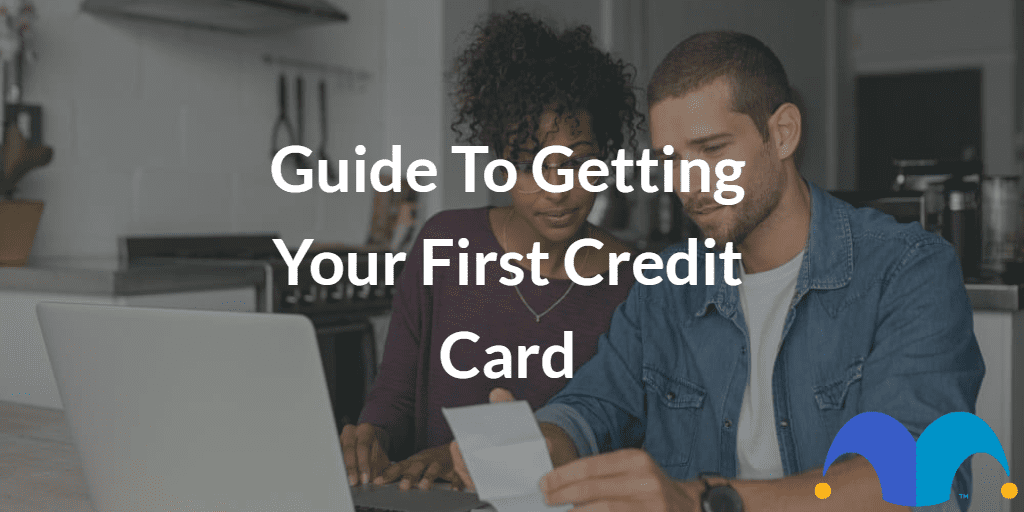Like all great milestones, getting a credit card is a pretty big deal. After all, it’s your 8x5cm plastic ticket to financial freedom and flexibility – as long as it’s used responsibly of course.
Let’s take a look at how credit cards work and some tips on how to manage your first credit card.
Deciding whether you should get a credit card
Credit cards are like short-term loans. They let you buy shiny new things without you having to immediately stump up the cash. That said, anything you borrow must be paid back.
Unless you have a specialist 0% purchase credit card, paying off your balance in full every month is always the best option. That’s because by clearing your balance each month you’ll avoid costly interest. If you don’t, or you only make the minimum repayment, then interest costs can spiral, putting you at risk of never-ending debt.
Now you know how credit cards work, whether you should get one depends on your answers to two big questions:
- Will getting a credit card encourage you to overspend?
- Will you be tempted to delay paying off your balance?
If the answer to either of these questions is yes, then it’s probably best to avoid credit cards for now.
Qualifying for your first credit card
To get a credit card in the UK, you have to be at least 18 years old. You also have to meet the eligibility requirements for the card, such as a minimum level of income.
Eligibility requirements exist because credit cards are forms of debt. As a result, lenders are keen to determine the likelihood that you’ll pay back your balance.
Unfortunately, many lenders don’t share their full eligibility criteria. To get around this, it’s worth using a credit card eligibility checker to check whether you qualify for the credit card you want.
Choosing your first-time credit card
If you have little or no credit history, then getting accepted for a normal credit card can be tricky. This is a bit of a chicken and egg scenario and it can be frustrating.
If you do apply for a credit card and get rejected, it isn’t the end of the world. However, lots of rejections in a short space of time could hit your credit score. That’s because each application shows up on your credit history and multiple applications may give the impression that you’re desperate for cash.
Instead of facing the risk of several rejections, you could consider one of the many credit builder cards, sometimes called ‘credit cards for bad credit’. Don’t be put off by the name. They aren’t just for people with a chequered credit history. They can also be a good place to start if you need to build up your credit score. Simply use these cards for your normal spending and always pay off your balance in full. Do this and you’ll prove to lenders that you can be trusted with credit.
Alternatively, if you’re confident you already have a decent credit score, then it’s worth knowing that there are other types of credit cards out there. For example, 0% balance transfer credit cards can give you an interest-free respite from existing debts, while 0% purchase credit cards offer a way to borrow at no cost. So, whether you’re a first-timer or an experienced credit card hopper, take some time, do your homework and choose the right credit card for you.
How to apply for your first credit card
Applying for your first credit card is easy enough. These days, you have a lot of options. You can:
- Find and apply for a credit card online
- Go to your bank or building society
- Apply by post
- Apply over the phone
When applying for a credit card, you’ll have to provide your address, your date of birth and information about your income. Based on the information you give, and taking into account your credit history, the credit card company will either accept or decline your application.
Obviously, if you’re accepted, you can merrily start flexing your new spending powers – but try not to get carried away.
What to do if your application is declined
If the computer says ‘no’ and your application is declined, it could be for any number of reasons. For example, if you’ve never borrowed money (e.g., a student loan), your credit score could be low or non-existent. If you think this might be the case, you can find out how to check your credit score to be sure.
In short, your credit score is essentially a summary of how well you manage your money, and it’s used as a gauge by credit lenders. The better the score, the more likely it is that you’ll be accepted for the top cards. It’s worth knowing that if you are declined, you can ask the credit card company for a reason why, though they often won’t give you a detailed explanation.
Tips for using your first credit card
It can be overwhelming when you get hold of your first credit card, especially if you’ve been given a hefty credit limit to go with it.
However, having a credit card comes with a big responsibility. That’s because using plastic in the wrong way (such as spending recklessly) can get you in big financial trouble.
To ensure you use your credit card responsibly, only ever use it if you know you’ll be able to repay your balance in full every month. The only exception is if you’re using a 0% purchase card, in which case you can make the minimum repayment until the 0% period ends.
Also, keep in mind that even if you have a credit card, there’s no obligation to use it regularly. Having a 0% purchase card locked away for emergencies is a perfectly valid and responsible way of using a credit card.
